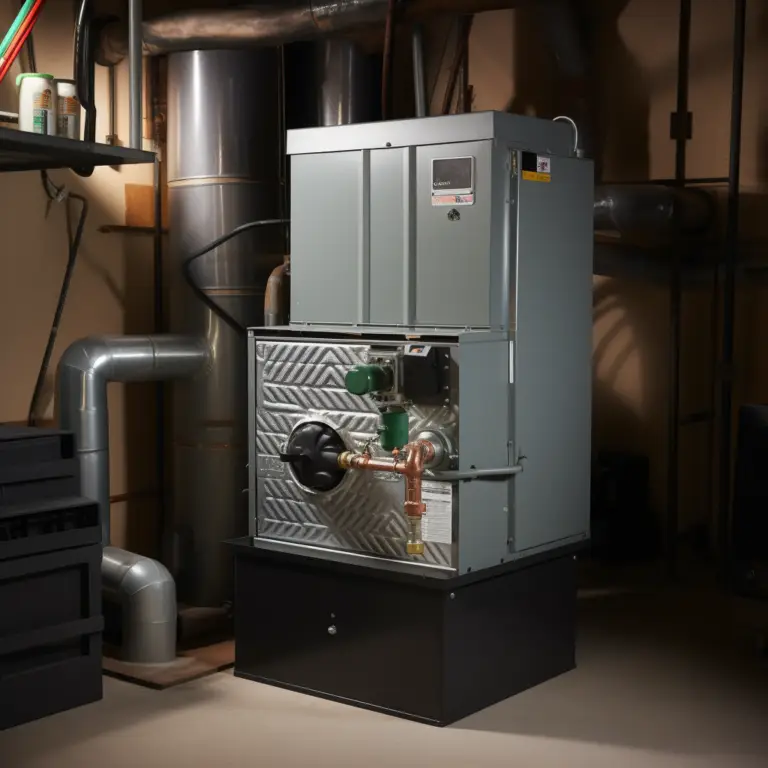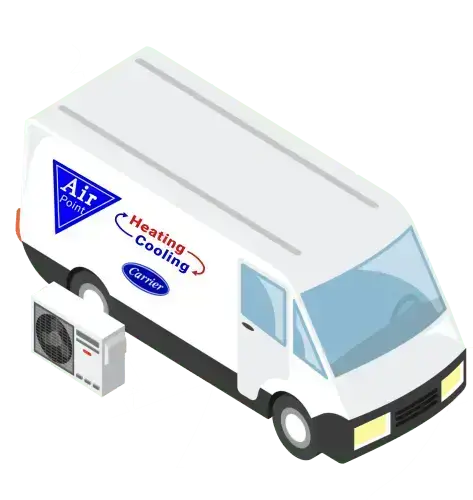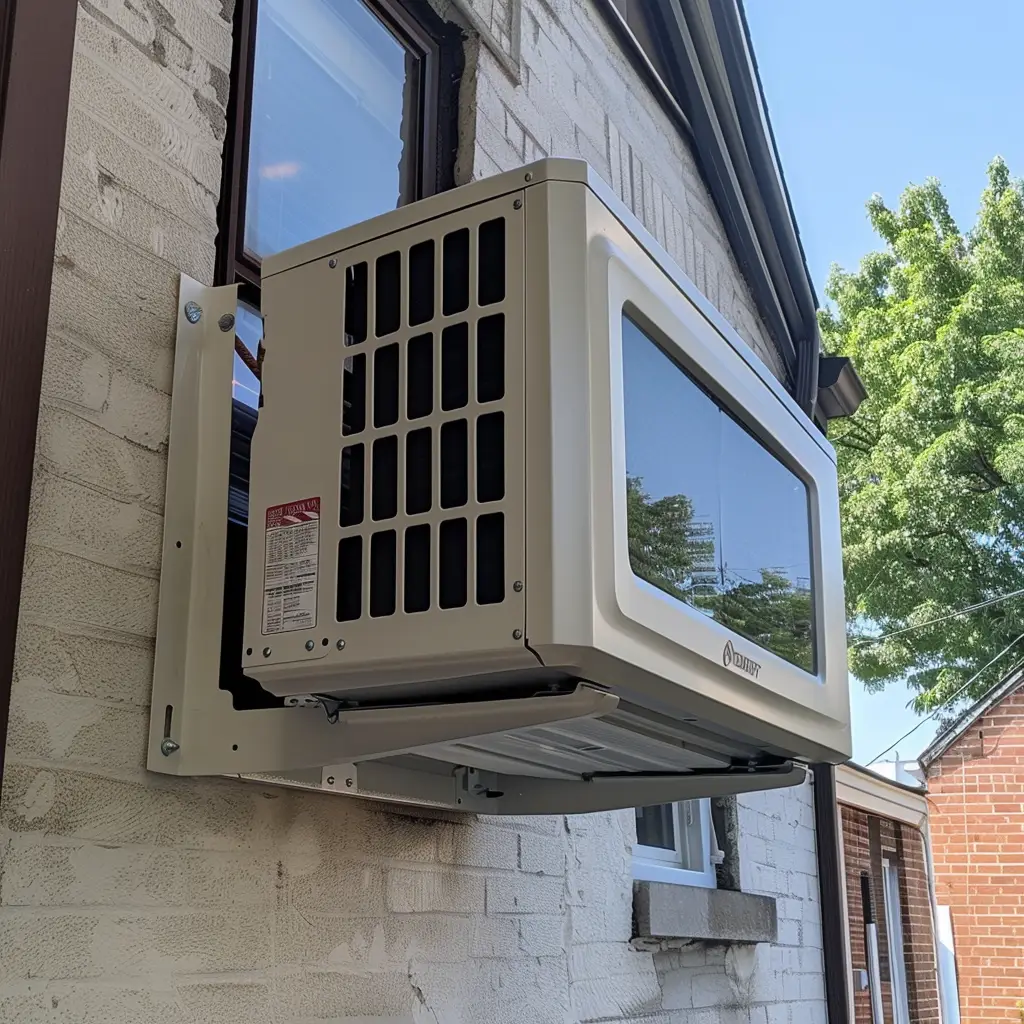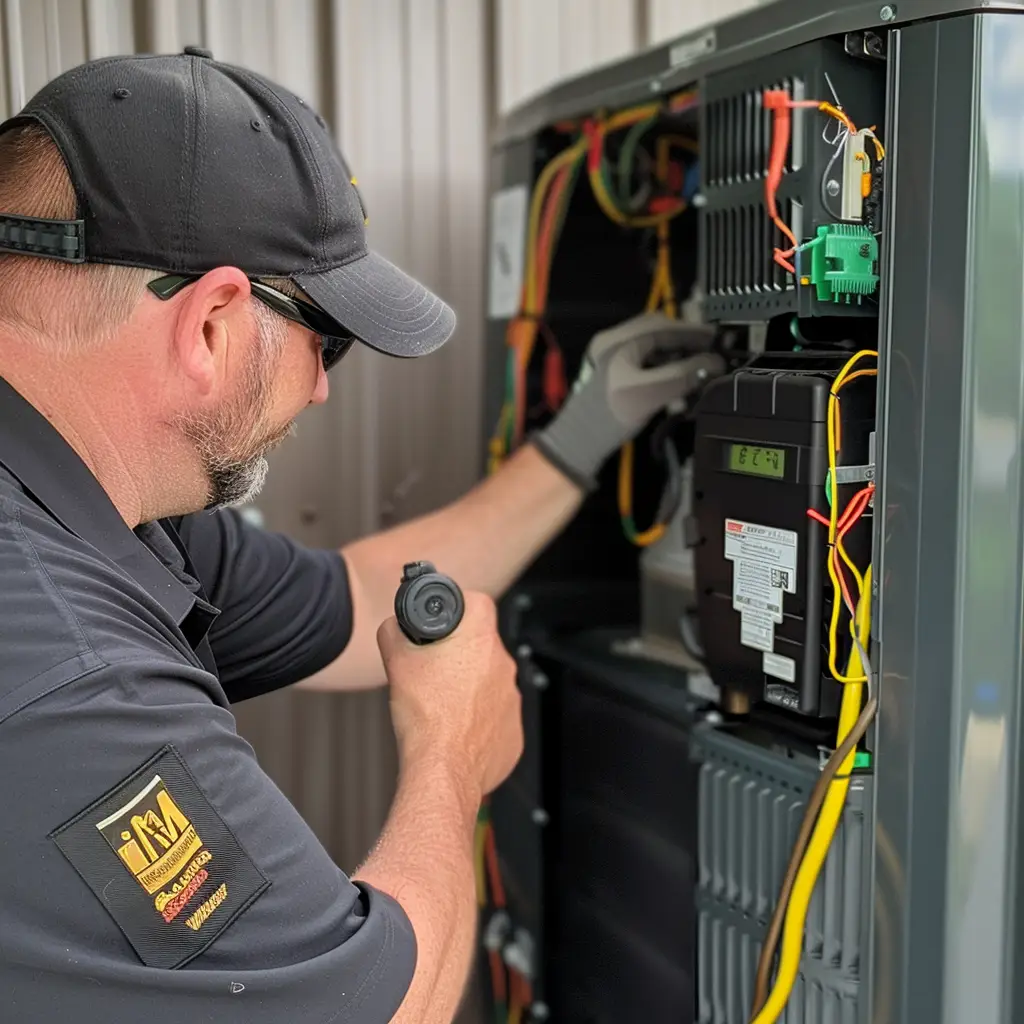You’re cozied up under a blanket, sipping hot cocoa, and suddenly you feel a chill. Could your furnace’s heat exchanger be the reason? Understanding its role is crucial to address the problem accurately.
Introduction to the Heat Exchanger Dilemma
The heat exchanger is to your furnace what an engine is to your car. Without it functioning efficiently, you might as well be in a vehicle that refuses to start.
How Does the Heat Exchanger Work?
This component is pivotal in transferring heat from the combustion gas to the air circulating in your living space, ensuring you remain snug.
Spotting a Defective Heat Exchanger
Your family’s safety can be jeopardized by a damaged heat exchanger, with hazards like carbon monoxide leaks lurking.
- Urgent Issues: A cracked exchanger is critical, leading to dangerous carbon monoxide emissions. Immediate action is necessary!
- Visible Damage: Corrosion, rust, or apparent cracks lead a malfunctioning heat exchanger and compromise your heating process.
- Dipping Performance: Cold spots around the house or prolonged heating durations are red flags.
Deciding Between Heat Exchanger Replacement & A New Furnace
This dilemma can feel like deciding between investing in fixing your old car or just buying a brand new one. But here’s how to navigate it:
- Considering the Age: If your furnace is a decade old or nearing that mark, replacing just the heat exchanger might not be the most economical decision in the long run. Think of it like investing in a brand new engine for a car that’s already falling apart.
- Evaluating Heating Efficiency: If your furnace struggles to maintain a consistent temperature or leaves certain areas cold, it might be time to reconsider its overall efficiency. It could either be nearing the end of its useful life or, perhaps, was not the right size for your home to begin with.
Pros of Just Replacing the Heat Exchanger
- Economical Upfront: It’s undoubtedly cheaper at the outset than a total furnace overhaul.
- Timely Solution: Especially crucial during colder months, it can provide a rapid remedy.
The Upsides of a New Furnace
- Enhanced Efficiency: Modern furnaces are optimized for better energy conservation, potentially reducing monthly expenses.
- Diminished Repairs: Newer models equate to fewer hitches and consequent repair expenses.
- Warranty Perks: A new furnace typically comes with a warranty, ensuring peace of mind for years.
Long-Term Cost Considerations
While replacing the heat exchanger might seem affordable initially, could it lead to recurrent repairs down the line? If your heat exchanger is cracked, check out this blog for more information on what to do.
Navigating Warranties
Your furnace’s warranty can play a decisive role in your choice. Many manufacturers offer extended parts warranties for heat exchangers, sometimes up to a lifetime. But here’s the catch: these often cover just the component and not the labor, which can be a significant chunk of the cost. If your furnace is still within its labor warranty, a heat exchanger replacement might be more cost-effective. If it’s past that period and particularly if it’s over ten years old, a full furnace replacement might be the better route.
Expert Recommendations
Always collaborate with a heating specialist. They can analyze your distinct circumstances and deliver bespoke advice. Every home and furnace narrates its unique tale.
Trust AirPoint for Your Heating Decisions
So, should you replace the heat exchanger or procure a new furnace? The answer isn’t universal. Assess the pros and cons, mull over your budget, and always put safety first. With AirPoint, a Carrier factory authorized dealer, and NATE certified professionals in Toronto, you’re in good hands. Proud recipients of the HomeStars Best of the Best 2023 accolade and rated 5 stars on Google and HomeStars, our TSSA, HRAI, and CSA certified technicians ensure you receive top-tier service. Always remember, home is where the warmth resides.
If you’re grappling with the decision between a heat exchanger replacement or a brand new furnace, check out this informative video by The DIY HVAC Guy. Dive deep into the potential costs and the factors that influence them.
Frequently Asked Questions about Heat Exchangers and Furnaces
How long does a typical heat exchanger last?
Generally, with diligent maintenance, a heat exchanger can last 10-20 years.
Are there safety risks with a malfunctioning heat exchanger?
Absolutely, a defective heat exchanger can lead to perilous carbon monoxide leaks.
What are the typical signs of a damaged heat exchanger?
Beyond physical damages like cracks or rust, you might also notice unusual odors, a change in flame color (from blue to yellow), and water pooling around the base of the furnace.
How often should I get my furnace and heat exchanger inspected?
It's recommended to have a professional inspection at least once a year, preferably before the heating season begins.
Does homeowners insurance cover heat exchanger replacement?
Coverage can vary based on your policy and the cause of the damage. Always check with your insurance provider to understand the specifics of your policy.
Are there specific brands known for longer-lasting heat exchangers?
Many reputable brands offer durable heat exchangers, including Lennox and Carrier. However, the lifespan also heavily depends on regular maintenance, usage patterns, and installation quality.





